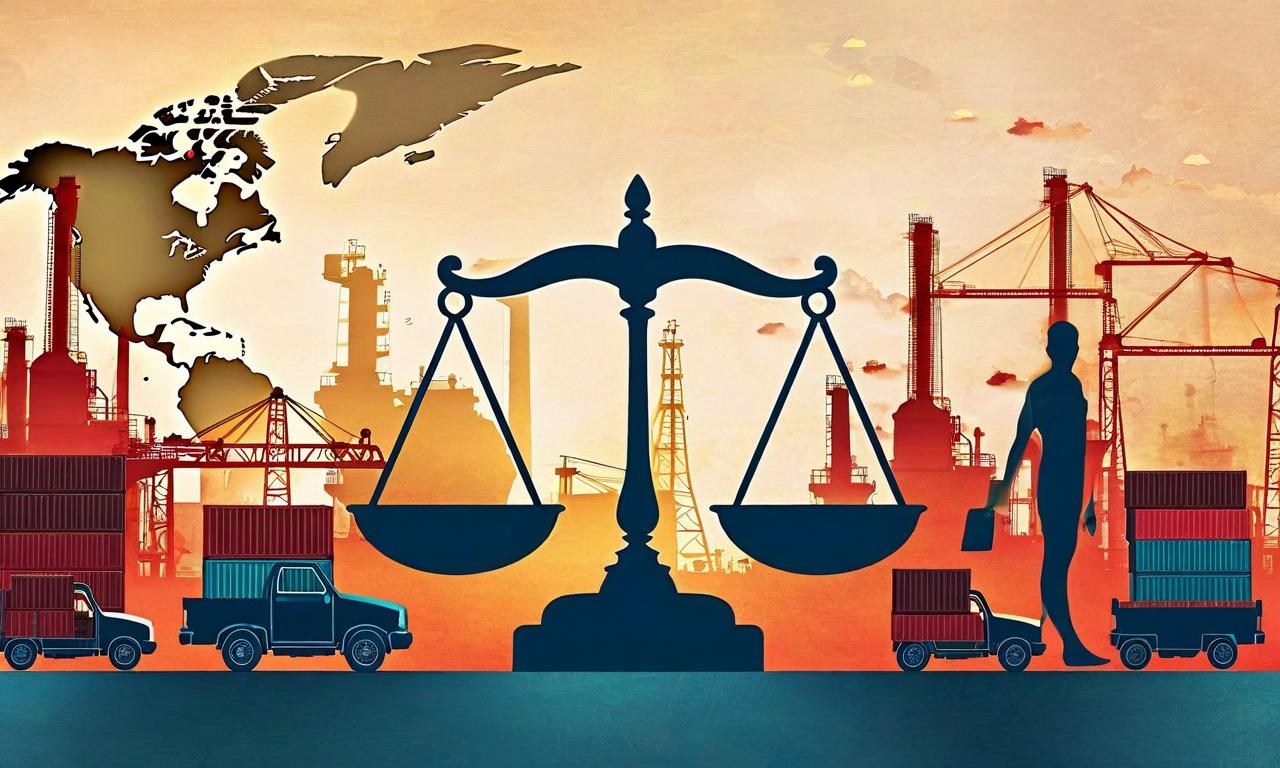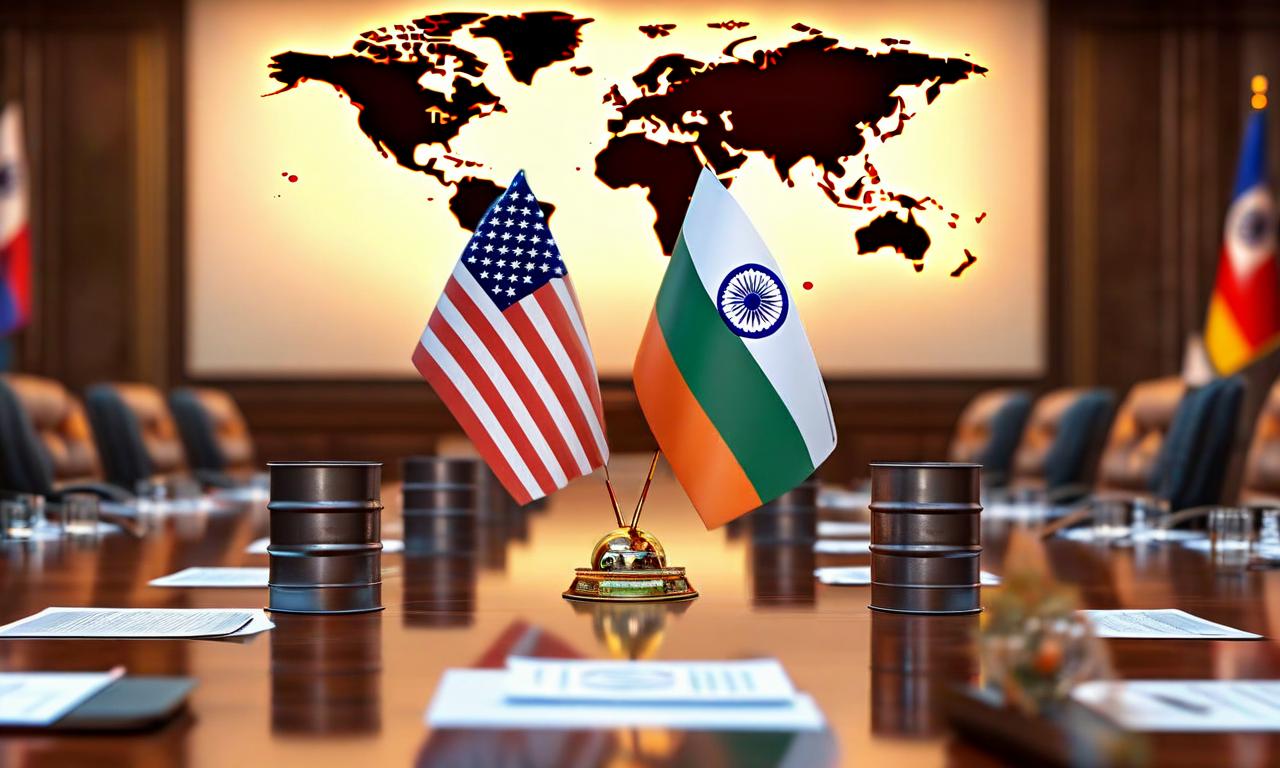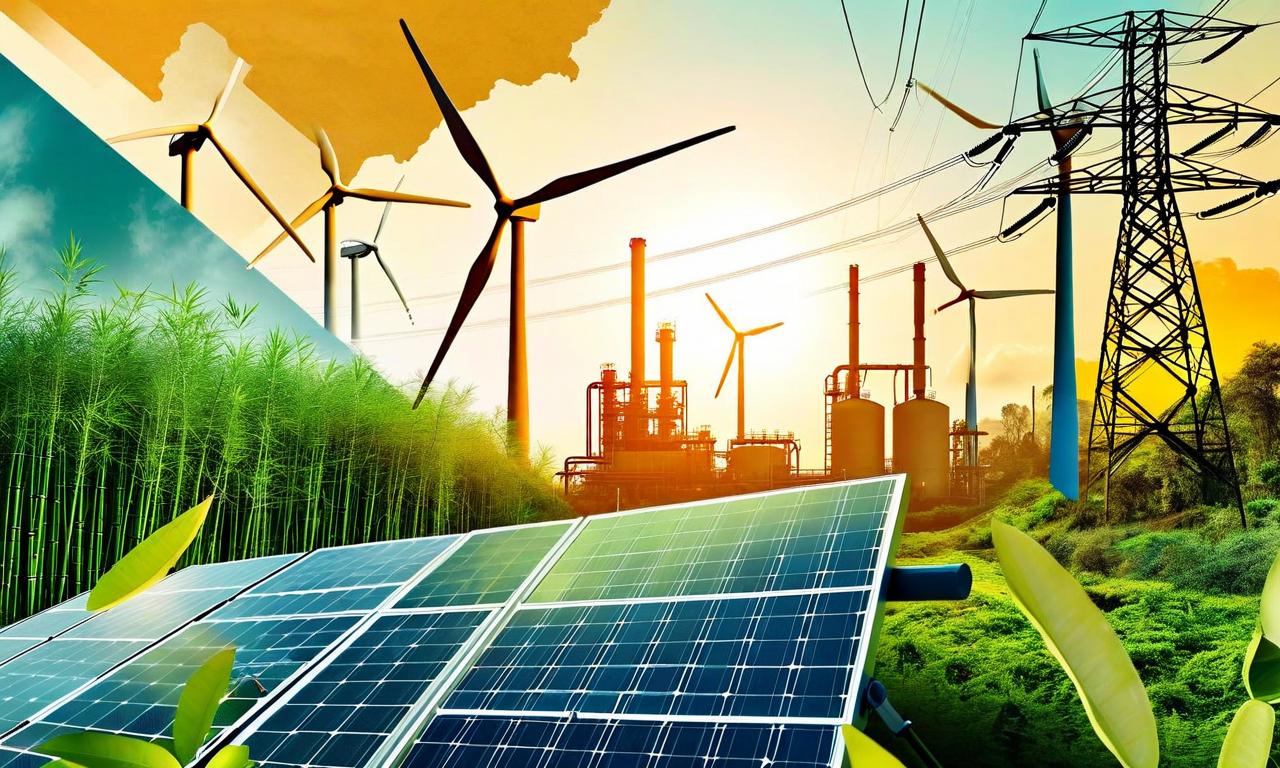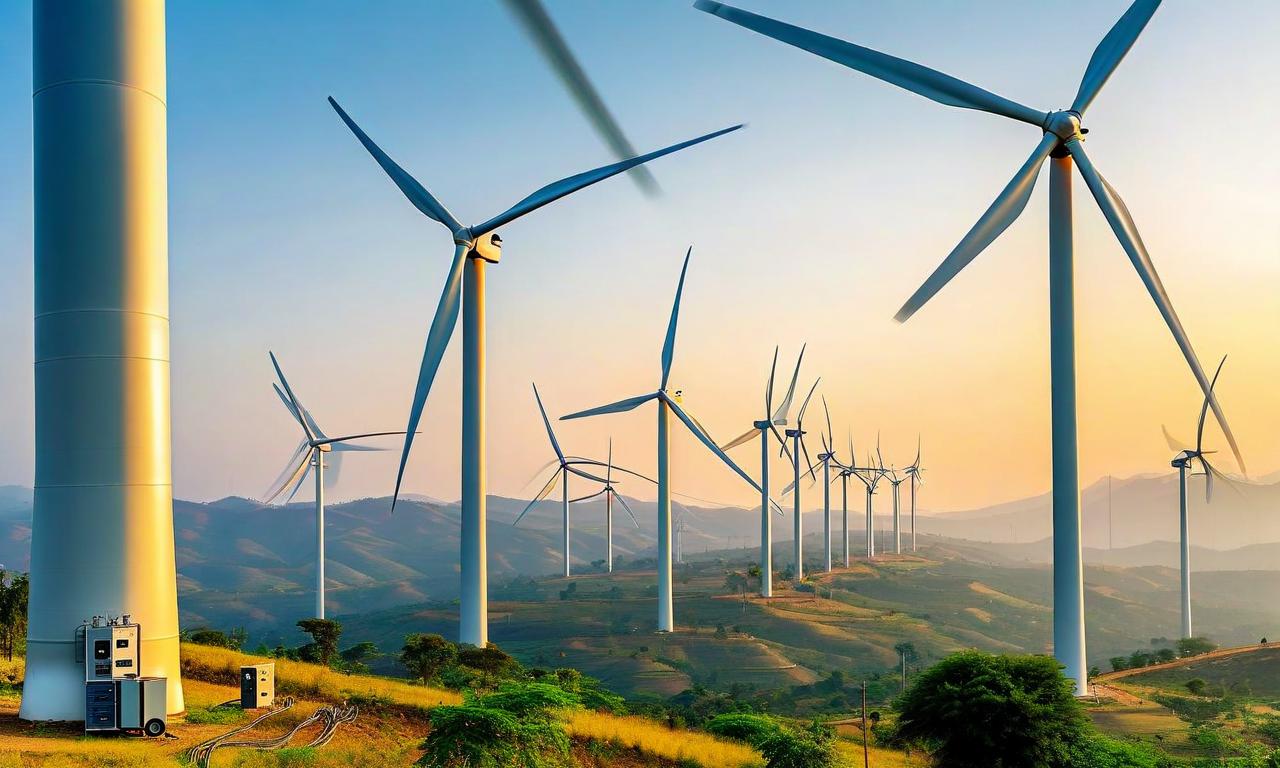India-US Trade Tensions Escalate: Tariff Disputes and Russian Oil Trade Strain Relations
The US has imposed additional 25% tariffs on Indian goods, bringing the total to 50%, due to India's increased Russian oil imports. US Treasury Secretary Scott Bessent expressed concerns about India's Russian oil purchases, which now account for 42% of India's imports. Trade talks have not yet produced a deal, and diplomatic efforts face challenges. The tensions are expected to impact India's economic growth, potentially slowing it from 6.50% to 5.50%.

*this image is generated using AI for illustrative purposes only.
In a significant development that marks ongoing challenges in India-US trade relations, tensions continue to escalate over tariffs and India's increased Russian crude purchases. This situation has led to complex diplomatic and economic interactions between the two nations.
Tariff Impacts and Trade Disputes
The United States has imposed substantial tariffs on Indian exports, with a recent announcement of an additional 25% tariff on Indian goods over the Russian oil trade. This brings the total additional tariffs to 50%, with the latest duty set to take effect on August 27. These tariffs target approximately one-fifth of India's exports to the US, including key sectors such as clothing, gems, and auto parts.
Oil Trade Controversies
US Treasury Secretary Scott Bessent has expressed concerns about India's growing imports of discounted Russian oil, which now accounts for 42% of India's imports compared to less than 1% before the Ukraine war. Bessent previously accused India of 'profiteering' from cheap Russian crude through reselling discounted oil in global markets. Despite these tensions, Bessent stated that India and the United States would find common ground, describing the relationship as 'very complicated'.
Diplomatic Efforts and Challenges
Trade talks launched after 'Liberation Day' on April 2 have not yet produced a deal, and hopes for an India-US trade agreement have repeatedly been delayed. The situation has led to various diplomatic repercussions:
- A scheduled US trade delegation visit to New Delhi was previously cancelled.
- There have been reports of strained communication between leaders, with Prime Minister Narendra Modi reportedly avoiding calls from US President Donald Trump in recent weeks.
- Modi is scheduled to visit China for the Shanghai Cooperation Organisation summit, marking his first visit to China in seven years.
Economic Implications
The trade tensions are expected to have a significant impact on India's economy. Earlier estimates suggested that the country's economic growth may slow from 6.50% to 5.50% due to these tariffs. However, the full extent of the economic impact remains to be seen as the situation continues to evolve.
Looking Ahead
As the situation unfolds, the international community will be watching closely to see how these trade tensions impact not only bilateral relations between India and the United States but also the broader economic and geopolitical landscape in South Asia. The coming months may prove crucial in determining whether diplomatic channels can effectively address the growing rift between these two major economies, particularly in light of the ongoing disputes over tariffs and energy trade policies.
Despite the challenges, there remains a possibility for reconciliation. As Treasury Secretary Bessent noted, the relationship between India and the US is complex, but there is still potential to find common ground. The international community will be keenly observing how both nations navigate these turbulent waters in their economic and diplomatic relations.

























